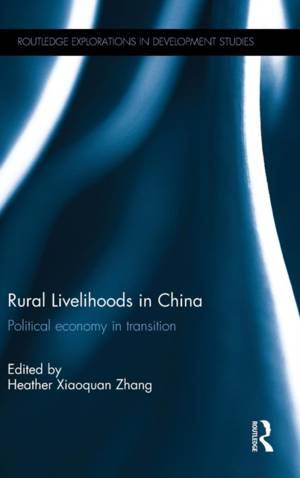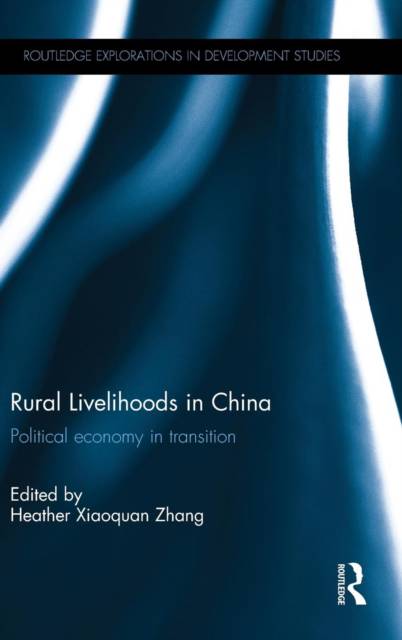
- Retrait gratuit dans votre magasin Club
- 7.000.000 titres dans notre catalogue
- Payer en toute sécurité
- Toujours un magasin près de chez vous
- Retrait gratuit dans votre magasin Club
- 7.000.000 titres dans notre catalogue
- Payer en toute sécurité
- Toujours un magasin près de chez vous
Rural Livelihoods in China
Political economy in transition
Description
In recent decades, China has undergone rapid economic growth, industrialisation and urbanisation concomitant with deep and extensive structural and social change, profoundly reshaping the country's development landscape and urban-rural relationships. This book applies livelihoods approaches to deepen our understanding of the changes and continuities related to rural livelihoods within the wider context of political economy of development in post-socialist China, bridging the urban and rural scenarios and probing the local, national and global dynamics that have impacted on livelihood, in particular its mobility, security and sustainability.
Presenting theoretically informed and empirically grounded research by leading scholars from across the world, this book offers multidisciplinary perspectives on issues central to rural livelihoods, development, welfare and well-being. It documents and analyses the processes and consequences of change, focusing on social protection of mobile livelihoods, particularly rural migrants' citizenship rights in the city, and the environmental, social and political aspects of sustainability in the countryside.
This book contributes to the current scholarly and policy debates, and is among the first attempts to critically reflect on China's market transition and the associated pathways to change. It will be of interest to students in international development studies, China studies, social policy, public health, political science, and environmental studies at undergraduate and postgraduate levels, as well as academics, policy makers and practitioners who are concerned with China's human and social development in general, and agriculture and rural livelihoods in particular.
Spécifications
Parties prenantes
- Editeur:
Contenu
- Nombre de pages :
- 236
- Langue:
- Anglais
- Collection :
Caractéristiques
- EAN:
- 9780415844673
- Date de parution :
- 02-04-15
- Format:
- Livre relié
- Format numérique:
- Genaaid
- Dimensions :
- 160 mm x 234 mm
- Poids :
- 498 g






